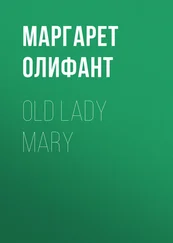Маргарет Олифант - Ombra
Здесь есть возможность читать онлайн «Маргарет Олифант - Ombra» — ознакомительный отрывок электронной книги совершенно бесплатно, а после прочтения отрывка купить полную версию. В некоторых случаях можно слушать аудио, скачать через торрент в формате fb2 и присутствует краткое содержание. Жанр: foreign_prose, literature_19, foreign_antique, на английском языке. Описание произведения, (предисловие) а так же отзывы посетителей доступны на портале библиотеки ЛибКат.
- Название:Ombra
- Автор:
- Жанр:
- Год:неизвестен
- ISBN:нет данных
- Рейтинг книги:3 / 5. Голосов: 1
-
Избранное:Добавить в избранное
- Отзывы:
-
Ваша оценка:
- 60
- 1
- 2
- 3
- 4
- 5
Ombra: краткое содержание, описание и аннотация
Предлагаем к чтению аннотацию, описание, краткое содержание или предисловие (зависит от того, что написал сам автор книги «Ombra»). Если вы не нашли необходимую информацию о книге — напишите в комментариях, мы постараемся отыскать её.
Ombra — читать онлайн ознакомительный отрывок
Ниже представлен текст книги, разбитый по страницам. Система сохранения места последней прочитанной страницы, позволяет с удобством читать онлайн бесплатно книгу «Ombra», без необходимости каждый раз заново искать на чём Вы остановились. Поставьте закладку, и сможете в любой момент перейти на страницу, на которой закончили чтение.
Интервал:
Закладка:
‘And I do wish you knew my mother,’ he went on innocently, not having the least idea that Kate’s silence arose from the fact that she was dumb with indignation; ‘she has the gift of understanding everybody. Isn’t it a pity that you should not know us, Miss Courtenay? My little sister Minnie is about your age, I should think.’
‘It is not my fault I don’t know you,’ burst forth Kate; ‘it is because you have not behaved properly to me—because your father would not pay any attention. Is it right for a clergyman to set a bad example, and teach people to rebel? He never even took any notice of my letter, though I am the natural head of the parish–’
‘You poor child!’ cried Bertie; and then he laughed.
Kate could not bear it—this was worse than her Uncle Courtenay. She stood still for a moment, and looked at him with things unspeakable in her eyes; and then she turned round, and rushed off across the green sward to the Hall, leaving him bewildered and amazed in the middle of the park, this time most evidently a trespasser, not even knowing his way back. He called after her, but received no answer; he stood and gazed round him in his consternation. Finally he laughed, though this time it was at himself, thus left in the lurch. But Kate was not aware of that fact. She heard the laugh, and it gave her wings; she fled to her melancholy home, where there was nobody to comfort her, choking with sobs and rage. Oh! how forlorn she was!—oh! how insulted, despised, trodden upon by everybody, she who was the lawful lady of the land! He would go and tell the Rectory girls, and together they would laugh at her. Kate would have sent a thunderbolt on the Rectory, or fire from Heaven, if she could.
CHAPTER IV
Kate rushed upstairs to her own room when she reached the Hall; she was wild with mortification and the sense of downfall. It was the first time she had come into collision with her fellow-creatures of a class equal to her own. Servants and poor people in the village had been impertinent to her ere now; but these were accidents, which Kate treated with the contempt they deserved, and which she could punish by the withdrawal of privileges and presents. She could scold, and did so soundly; and she could punish. But she could neither scold nor punish in the present case. Her Uncle Courtenay would only look at her in that exasperating way, with that cool smile on his face, as if she were a kitten; and this new being, with whom already she felt herself so well acquainted—Bertie would laugh, and be kind, and sorry for her. ‘Poor child!—poor little thing!’ These were the words he had dared to use. ‘Oh!’ Kate thought, I would like to kill him! I would like to–’ And then she asked herself what would he say at home? and writhed on the bed on which she had thrown herself in inextinguishable shame. They would laugh at her; they would make fun of her. ‘Oh! I would like to kill myself,’ cried Kate, in her thoughts. She cried her eyes out in the silence of her room. There was no Bertie to come there with sympathetic eyes to ask what she was doing. Miss Blank did not care; neither did any one in the house—not even her own maid, who was always about her, and to whom she would talk for hours together. Kate buried her head in her pillow, and tried to picture to herself the aspect of the Rectory. There would be the mother—who, Bertie said, understood everybody—seated somewhere near the table; and Edith and Minnie in the room—one of them, perhaps, doing worsted-work, one at the piano, or copying music, or drawing, as young ladies do in novels. Now and then, no doubt Mrs. Hardwick would give them little orders; she would say, perhaps, ‘Play me one of the Lieder, Minnie,’ or ‘that little air of Mozart’s.’ And she would say something about her work to Edith. Involuntarily that picture rose before lonely Kate. She seemed to see them seated there, with the windows open, and sweet scents coming in from the garden. She heard the voices murmuring, and a soft little strain, andante pianissimo , tinkling like the soft flow of a stream through the pleasant place. Oh! how pleasant it must be—even though she did not like the Rectory people, though Mr. Hardwick had been so rebellious, though they did not believe in her (Kate’s) natural headship of Church and Slate in Langton-Courtenay.
She sobbed as she lay and dreamed, and developed her new imagination. She had wondered, half angrily, half wistfully, about the Rectory people before, but Bertie seemed to give a certain reality to them. He was the brother of the girl whom Kate had so often inspected with keen eyes, but did not know; and he said ‘Mamma’ to that unknown Mrs. Hardwick. ‘Mamma!’ What a curious word it was, when you came to think of it! Not so serious, nor full of meaning as mother was, but soft and caressing—as of some one who would always feel for you, always put her arm round you, say ‘dear’ to you, ask what was the matter? Miss Blank never asked what was the matter! She took it for granted that Kate was cross, that it was ‘her own fault,’ or, as the very kindest hypothesis, that she had a headache, which was not in Kate’s way.
She lay sobbing, as I have said; but sobbing softly, as her emotion wore itself out, without tears. Her eyes were red, and her temples throbbed a little. She was worn out; she would not rouse herself and go downstairs to tempt another conflict with her uncle, as, had it not been for this last event, she would have felt disposed to do. And yet, poor child, she wanted her tea. Dinner had not been a satisfactory meal, and Kate could not help saying to herself that if Minnie and Edith had been suffering as she was, their mamma would have come to them in the dark, and kissed them, and bathed their hot foreheads, and brought them cups of tea. But there was no one to bring a cup of tea, without being asked, to a girl who had no mother. Kate had but to ring her bell, and she could have had whatever she pleased; but what did that matter? No one came near her, as it happened. The governess and her maid both supposed her to be with her uncle, and it was only when Maryanne came in at nine o’clock to prepare her young mistress’s hair-brushes and dressing-gown, that the young mistress was found, to Maryanne’s consternation, stretched on her bed, with a face as white as her dress, and eyes surrounded with red rings. And in the dark, of all things in the world, in a place like Langton-Courtenay, where it was well known the Blue Lady walked, and turned folks to stone! At the first glance Maryanne felt certain that the Blue Lady only could be responsible for the condition in which her young mistress was found.
‘Oh! miss,’ she cried, ‘and why didn’t you ring the bell?’
‘It did not matter,’ said Kate, reproachful and proud.
‘Lying there all in the dark—and it don’t matter! ‘Oh! miss, I know as you ain’t timorsome like me, but if you was once to see something–’
‘Hold your tongue!’ said Kate, peremptorily. ‘See something! The thing is, in this house, that one never sees anything! One might die, and it never would be known. You don’t care enough for one to come and look if one is dead or alive.’
‘Oh! miss!’
‘Don’t say “Oh miss!” to me,’ cried Kate, indignantly, ‘or pretend– Go and fetch me some tea. That is the only thing you can do. You don’t forget your own tea, or anything else you want; but when I am out of sorts, or have a—headache–’
Kate had no headache, except such as her crying had made; but it was the staple malady, the thing that did duty for everything in Miss Blank’s vocabulary, and her pupil naturally followed her example, to this extent, at least.
‘Have you got a headache, miss? I’ll tell Miss Blank—I’ll go and fetch the housekeeper.’
Читать дальшеИнтервал:
Закладка:
Похожие книги на «Ombra»
Представляем Вашему вниманию похожие книги на «Ombra» списком для выбора. Мы отобрали схожую по названию и смыслу литературу в надежде предоставить читателям больше вариантов отыскать новые, интересные, ещё непрочитанные произведения.
Обсуждение, отзывы о книге «Ombra» и просто собственные мнения читателей. Оставьте ваши комментарии, напишите, что Вы думаете о произведении, его смысле или главных героях. Укажите что конкретно понравилось, а что нет, и почему Вы так считаете.












